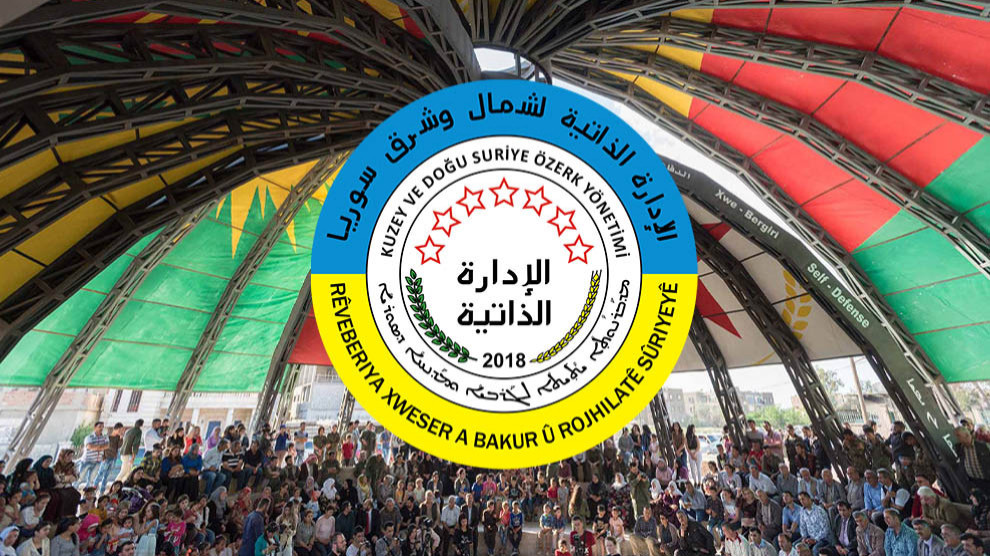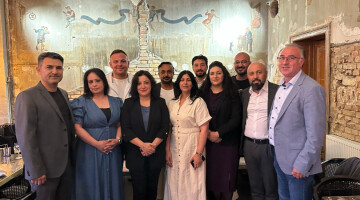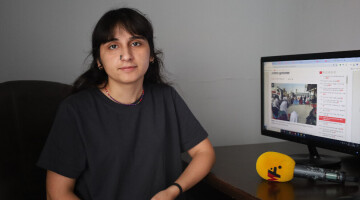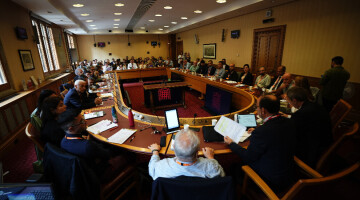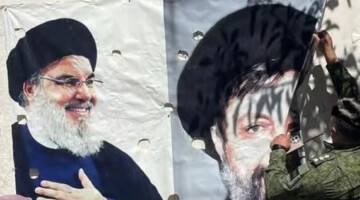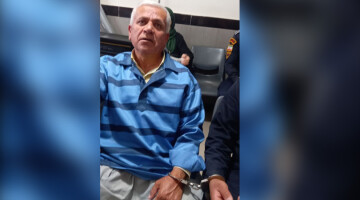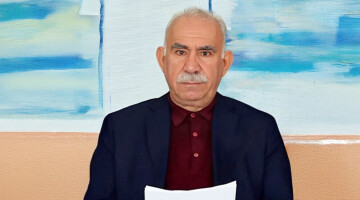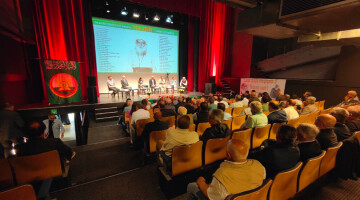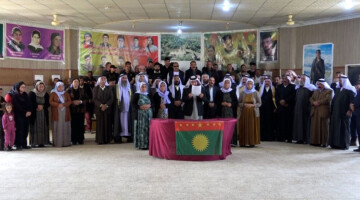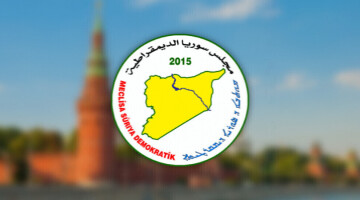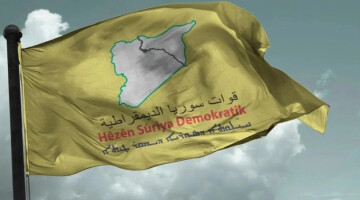The unresolved Kurdish question in the Middle East has been one of the most serious conflicts in the region for more than a century, with dramatic political and humanitarian consequences - for all four central states, to which the historical settlement territory of the Kurds was divided quite arbitrarily: Turkey, Iran, Iraq and Syria. The "divide and rule" policy has not only created a Middle East that resembles an open powder keg and is constantly fed with dynamite. In the "quadripartite" Kurdistan, starting with the denial of a Kurdish existence at all, an unresolved identity conflict has established itself. Also from this aspect, the solution of the Kurdish question and Kurdish self-determination is seen as the key element of the democratization of the Middle East.
In Syria, the Kurds form the largest minority in the country. Their oppression, similar to that in Turkey, has a history of decades. The Syrian regime also relied on tyranny and denial of Kurdish existence. The recognition of Kurdish identity was considered a threat to national unity. Even before the country was marked by political instability in the 1960s - one coup followed the next - the Kurds experienced brutal oppression. In 1958, the publication of Kurdish books and the teaching of the Kurdish language in schools was banned. The authorities Arabized the names of Kurdish villages and towns. In 1962, 120,000 Kurds were deprived of Syrian citizenship after a census in Hesekê. In 1963, shortly after the Baath Party took power, plans to "Arabize" northern Syria began to take shape with the so-called "12-point plan" by Talab Hilal, the then police director of Hesekê. His racist and anti-Semitic ideas about how to deal with the Kurds were clear: Hilal called the Kurds a "malignant tumour". To "cut it out" was the only right way to "cure" Syria.
Ten years later, the so-called "Arabization" was implemented in a 350-kilometer long and about fifteen-kilometer wide "Arab belt" along the border with Turkey in order to change the ethnic composition of the population in favor of the Arab population. In the course of the Arabization project, dozens of new villages were built and four thousand Arab families from Raqqa and Aleppo were settled as early as the beginning of the 1970s. Kurds were deliberately expelled or deported from their ancestral homeland, their cultivable land confiscated and given to the newly settled Arabs. The regime presented this de facto expropriation as "privatization", deprived the expropriated Kurds of their citizenship and Arabized all Kurdish place names. Nevertheless, the Kurds remained steadfast and refused to comply with the regime's demand to leave the region.
Syria's President Bashar al-Assad, who has continued the oppressive policy of his father Hafiz al-Assad since 2000, recently stated in an interview on Russian television that there is no "Kurdish question" in Syria. Claims to the contrary were "illusory and a lie", he said and argued that, moreover, all Kurds living in northern Syria have immigrated from Turkey in the last century.
The fact that the Assad regime, despite the crisis in Syria, which has now been going on for nine years and is getting worse and worse, has apparently not changed its attitude towards the Kurds and is sticking to its assimilation policy has provoked sharp criticism in the self-governing areas of northern and eastern Syria. In a written statement, the autonomous administration recalls that Syria, once torn by internal conflicts, has become a theatre of war for numerous armed groups and international state actors within a scant decade.
"The Syrian regime, as the architect of this as yet unresolved crisis, is shirking its responsibility to find solutions instead. That Bashar al-Assad under these circumstances is sticking to the mentality that created this crisis, is unacceptable".
The autonomous administration emphasizes that the regime's approach and language against the Kurds do only serve the Turkish state, which occupies large areas of Syrian territory; "The government in Damascus claims that Syria will defend its territory and will not accept any occupation of 'Syrian soil'. However, Assad's most recent statements testify to the regime's lack of interest in dialogue and hamper the search for a solution to the crisis. The Kurdish question is one of the most fundamental problems and the key to the democratisation of the country. A peaceful solution will pave the way to defusing Syria's crisis."
Alluding to the accusations of separatism raised by Assad against the Kurdish part of the population and the peoples of northern and eastern Syria, the autonomous administration calls on the regime to take a look at the recent past and at Afrin’s resistance against the Turkish state and its "terrorist jihadist factions" - a struggle that was aimed at defending the integrity of Syria.
"All those who are now accusing us of separatism in Syria should remember emphatically those who defended Serêkaniyê (Ras al-Ain) and Girê Spî (Tal Abyad) with their lives. It should not be forgotten that the regime remained silent on the invasion and merely observed incidents from a distance. We, the peoples of Northern and Eastern Syria, are committed to defending the very Syrian soil that the regime claims to protect. Our merit is obvious, we do not have to present the evidences of our struggle but we have the right to ask the Syrian regime if it has achieved any success.”
In its statement, the autonomous administration emphasizes that the regime must finally adopt a solution-oriented attitude in order to lead Syria out of the crisis, saying that, in the contrary case, the conflicts would intensify further.
“The current mentality, which has failed to come up with a solution to the Syrian crisis for years, is what has made the occupation of Northern Syrian cities by Turkey possible.”
For a Syria-wide perspective to solve all problems, a renewed political agenda is needed that allows for change and internalizes democracy, the autonomous administration proposes.
"To build a democratic Syria, the paths must be opened. At the same time it should be accepted that the Kurdish question is one of the main factors in Syria's crisis. The autonomous administration of northern and eastern Syria is not a system that seeks to divide Syria. The project of a democratic nation, which is implemented in the self-governing areas, is based on the fraternity of the peoples. It has proved to be successful. Statements aimed at defaming this alternative system, which has already proved its worth, are of benefit only to those who want Syria to be divided,” the statement said.

